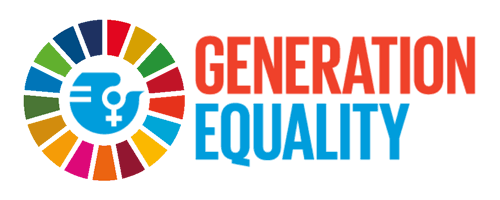Celebrating the Generation Equality Midpoint
17th September marks the Generation Equality “Midpoint Moment”, two and a half years on from the initial commitmentsmade at the Paris 2021 summit. We’ve been reflecting as an organisation on how far we’ve come, and the important work our partners are doing to make the Generation Equality goals a reality.
CIFF committed $500 million across two Action Coalitions, including $460 million for Bodily Autonomy and Sexual and Reproductive Health and Rights (SRHR) and $40 million for Economic Justice and Rights. Two years later, we have disbursed a total of $118.4 million against our overall commitment, and thanks to our scaling levels of disbursements, we are on track to fulfil our commitment by 2026.
The right of every woman and girl to have control over her body is fundamental to CIFF’s vision of gender equality and informed choice for all women and girls. As a proud co-lead of the Bodily Autonomy and SRHR Action Coalition, we are tackling multiple obstacles to sexual and reproductive healthcare, such as working to strengthen global financing for SRHR commodities and access, supporting policy change for comprehensive SRHR and engaging with communities to create the right environments for women and girls to exercise freedom of choice. One example of this work is our SRHR Step Up investment, which has increased SRHR service delivery through interventions focused on reaching the last mile in sub-Saharan Africa. As of today, MSI’s work under this investment has reached 4.46 million women & girls, with an estimated 1.6 million unsafe abortions and 18,700 maternal deaths averted.
We are also committed to working closely with governments to support their progress on SRHR. In India, our work specifically focuses on providing demand-driven assistance to government investments in health systems and demand generation interventions, supporting availability and demand of reversible contraceptive methods.
As commitment-makers to the Economic Justice and Rights Action Coalition, we seek to support ambitious action on women and girls’ access to education and jobs. Through our Girl Capital portfolio, we are supporting girls to learn and to transition to safe, sustainable jobs. In Kenya, we have launched a partnership with PopCouncil Kenya and Wajir County to support girls to return to school, which has seen up to 50% of out-of-school girls, who constitute one of the most marginalised groups of adolescents, back to school in target villages.
In India, we are working with partners to assist the Government of Rajasthan to support girls to enrol and transition through secondary school, using a digital education model to bridge the gender gap in technology by scaling government systems in Rajasthan. The programme has increased the pass percentages of 20,000 girls and is now poised for expansion across all districts in the state to cover more than 1m girls.
We also believe that policies and interventions are more effective and progressive when they take into account the views of girls and young women. Via our partnerships with young feminist organisations and networks, we have supported them to access decision-making processes and multilateral spaces from which young people, especially those affected by intersecting inequalities, are often excluded. We recognise that there is more to do in this area and we commit to continuing to work with young people on these issues.
Find out more about some of the organisations we’re working with to fulfil our Generation Equality Commitment:
